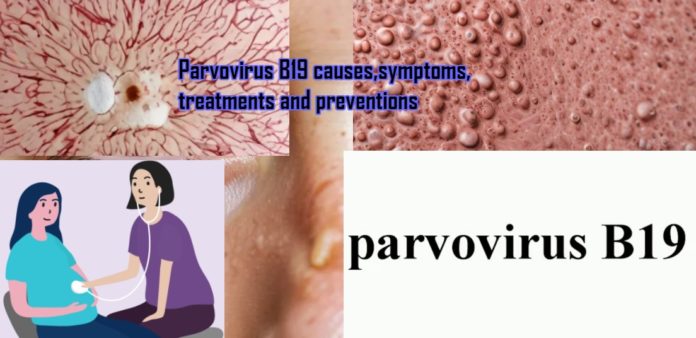Parvovirus B19 is a very common and contagious virus, although it occurs more in children than in adults. This virus causes the well-known “fifth disease” with its typical facial rash; however, parvovirus B19 can have more serious complications for particular groups, like women in pregnancy or those with a weak immune system.
Therefore, knowing the symptoms, causes, and treatment options is very important in managing and preventing the infection. Parvovirus B19 infection has also been known as a fifth disease because, historically, it was fifth on a list of common childhood illnesses characterized by a rash.
Symptoms of Parvovirus B19
The symptoms of parvovirus B19 vary depending on age and health status. Fifth Disease: The most commonly recognized symptom in children is probably the red rash that develops on the cheeks—a bright red “slapped cheek” rash. In some children, this facial rash may be followed by a lacy red rash on the body and limbs; this can occasionally be itchy.
Flu-like symptoms: Kids and adults can experience mild flu with fever, running nose, headache, and tiredness. Joint pain and swelling occur in adults and usually affect the hands, wrists, knees, and ankles.
Complications in Pregnant Women: If a pregnant woman becomes infected with this virus. Then that unborn baby will experience serious anemia that can lead to miscarriage or stillbirth.
Causes of parvovirus B19
Parvovirus B19 is a very contagious disease. It usually spreads through the respiratory secretions of any infected individual in the form of saliva, mucus, or even droplets. Moreover, it can also be transmitted through blood or from an expecting mother to her baby. The virus is highly contagious and is widely seen to spread at a fast pace in schools and daycare centers.
When to Consult a Doctor
Children: The rash and sudden rise in body temperature in the child mean that it is advisable to take the child for medical consultation. And tests to rule out parvovirus B19 or any other disorder.
Women Who Are Pregnant: Any pregnant woman who comes into contact with parvovirus B19 should urgently call her health provider. Especially if she is within the first half of gestation.
Weakened Immune System: If one has a weak immune system—having conditions such as HIV/AIDS or another illness—or is undergoing chemotherapy . One should get immediate care if it is thought one might have been exposed to the virus.
Also read: Federal Government’s New Initiative Targets Mother-to-Child HIV Transmission
Preventing It and What Treatment Looks Like
Prevention: As there is no vaccine against parvovirus B19, measures to prevent infection revolve around good hygiene practices. Washing hands regularly, staying away from an infected host, and covering the mouth and nose when coughing or sneezing will reduce the possibility of transmission.
Treatment: Treatment for parvovovirus B19 is primarily symptomatic, so it is supportive in nature. People can take over-the-counter pain relievers to reduce the fever or aching joints. In some cases, in which people experience severe anemia or when some complication arises, treatment is usually more aggressive.
Complications of Parvovirus B19
Severe Anemia: The infection can cause sudden drops in red blood cell counts in individuals with some anemias or whose immune systems are weak.
Pregnancy complications: Infection during pregnancy may trigger hydrops fetalis in the fetus. This is a serious condition that might lead to miscarriage or stillbirth.
Chronic infection: immune-deficient patients can get chronic parvovirus B19 infection, in which case it will even be challenging to manage, and thus antiviral therapy would be required.
Parvovirus B19 is one of the more common but sometimes serious viruses, particularly for pregnant women and people with a weak immune system. While it often causes only mild symptoms, it is still relevant to understand potential complications and know when to seek medical advice. Good hygiene and awareness about symptoms will help prevent the virus from spreading.

